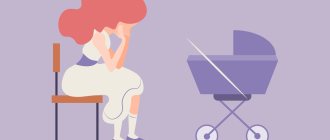Depression is a serious mental disorder that occurs for a variety of reasons and comes in many forms. The symptoms of depression are similar to bipolar disorder and blues. That is why it cannot be diagnosed by eye - errors in treatment can aggravate the condition.
But there is a simple way to self-diagnose - the Beck Depression Scale. With its help, any person will determine whether he is suffering from a mental disorder or whether it is just the blues.
Find out what the Beck Scale is, who it is for, and how to use it.
What is the Beck Depression Inventory?
The Beck Inventory is a test to determine your level of depression. It was developed in 1961 by American psychotherapists led by Aaron Beck. The study was based on the results of clinical observations - they helped identify 21 symptoms of depression.
Aaron Beck, author of the Depression Scale Photo: Wikipedia
In 1978, a revised version of the test, the BDI-1A, was published. This is an acronym for Beck Depression Inventory 1A. The latest version is called BDI-II and was released in 1996.
The Beck Depression Inventory contains a list of 21 questions - each describing a symptom of depression. The questions have four answer options - you need to choose the one that suits your situation. Each answer is assigned a certain number of points. Their total sum is the test result. It ranges from 0 to 63. The higher the number, the higher the level of depression a person has.
Limitations of the Beck Anxiety Scale
Most of the questions on the Beck Anxiety Scale are aimed at identifying somatic symptoms of anxiety.
Cognitive, affective, and behavioral components of anxiety have received less attention
Therefore, this anxiety test functions more adequately in anxiety disorders with a high somatic component, such as panic disorder. On the other hand, the Beck Anxiety Inventory will not function as adequately for disorders such as social phobia or obsessive-compulsive disorder, because they have a more pronounced cognitive or behavioral component.
How is the Beck Scale used?
The Beck Depression Inventory is used as a tool to improve self-esteem. In this case, a person takes the test in the presence of a specialist in order to be able to look at himself from the outside and objectively evaluate.
The Beck scale is useful when working with teenagers - they are the ones who are susceptible to depressive moods, which often lead to suicide. A depression test will help you identify the problem in time and prevent terrible consequences.
Anyone can use the Beck Scale if their psychological state is of concern.
What does the scale look like?
The depression questionnaire consists of twenty-one questions, each of which is based on signs of the presence of a depressive disorder. According to experts, this method is unique because it is based on two criteria:
- The first is somatic signs of a mental disorder, among which disturbances in the sexual sphere, night sleep and the process of eating should be highlighted.
- The second is affective-cognitive symptoms, which are characteristic of a disease such as psychosis, which has a manic-depressive form of severity.
The above signs are hidden in certain points of the test. This technique involves a detailed analysis of patient responses, on the basis of which a preliminary diagnosis is established. A number equal to sixty-three is the maximum final score in this test. This result indicates the presence of a severe form of the disease that requires immediate treatment. Otherwise, there is a high risk to the patient's health.
The vast majority of questions are in the form of a statement, “I act this way” or “I feel this way.” Examples of test questions include “I can perform my job duties with the same quality as before.” The answers to this question look like this:
- “I feel the quality of my work is declining.”
- “I have to put in a lot of effort to stay on track.”
- “I work at the same rhythm as before.”
For each answer, the subject receives from zero to three points.
It is important to note that the Beck scale can be used independently. By taking a test on the Internet, you can not only identify the presence of depression, but also determine its severity
However, many experts recommend undergoing such testing from a competent psychotherapist. Based on tests, if necessary, an experienced doctor can determine a treatment strategy and help get rid of the signs of a mental disorder.
Depression is not just a bad mood or “loss of energy”, but a complex mental disorder that has specific signs and symptoms
The diagnostic method under consideration is available to everyone who wants to take a psychological test in order to assess the state of their own psyche
It is important to note that taking the test can help increase your level of self-esteem. The Beck Depression Test is not recommended to be taken alone. A specialist or a close relative must take part in this process.
This approach to diagnosis allows you to assess your own condition “through someone else’s eyes.”
A specialist or a close relative must necessarily take part in this process. This approach to diagnosis allows you to assess your own condition “through someone else’s eyes.”
According to experts, most of these fatal incidents could have been prevented with timely therapeutic intervention. This is precisely why the Beck Depression Test is used, which allows you to assess your mental state at any age, be it a schoolchild, a teenager or an adult. Taking the test allows you to timely determine the presence of signs of a mental disorder and begin treatment.
Test yourself for depression using the Beck Depression Scale
Below are groups of statements. Each statement has four answer options. Choose the one that best describes how you have felt over the past week, including today. Points are added up automatically.
Time limit: 0
Navigation (job numbers only)
0 of 21 tasks completed
Questions:
- 1
- 2
- 3
- 4
- 5
- 6
- 7
- 8
- 9
- 10
- 11
- 12
- 13
- 14
- 15
- 16
- 17
- 18
- 19
- 20
- 21
Information
Beck Depression Inventory
You have already taken the test before. You can't start it again.
The test is loading...
You must log in or register in order to begin the test.
You must complete the following tests to start this one:
results
Your time:
Time's up
You scored 0 out of 0 points (0)
Categories
- No category 0%
- You can see the test results below.
- 1
- 2
- 3
- 4
- 5
- 6
- 7
- 8
- 9
- 10
- 11
- 12
- 13
- 14
- 15
- 16
- 17
- 18
- 19
- 20
- 21
- With answer
- With a viewing mark
- Task 1 of 21
1.
1 statement
- Task 2 of 21
2.
2 statement
- Task 3 of 21
3.
3 statement
- Task 4 of 21
4.
4 statement
- Task 5 of 21
5.
5 statement
- Task 6 of 21
6.
6 statement
- Task 7 of 21
7.
7 statement
- Task 8 of 21
8.
8 statement
- Task 9 of 21
9.
9 statement
- Task 10 of 21
10.
10 statement
- Task 11 of 21
11.
11 statement
- Task 12 of 21
12.
12 statement
- Task 13 of 21
13.
13 statement
- Task 14 of 21
14.
14 statement
- Task 15 of 21
15.
15 statement
- Task 16 of 21
16.
16 statement
- Task 17 of 21
17.
17 statement
- Task 18 of 21
18.
18 statement
- Task 19 of 21
19.
19 statement
- Task 20 of 21
20.
20 statement
- Task 21 of 21
21.
21 statements
Interpretation of responses
From zero to nine points
The author of this diagnostic test used his own method of interpreting the answers. If, as a result of testing, the subject scores from zero to nine points, this indicates the absence of signs of depression. In this case, the presence of mild signs of depressive disorder is allowed, which are of little significance and do not require psychotherapeutic intervention. Most often, such symptoms disappear on their own after a short period of time.
Ten to fifteen points
A score of ten to fifteen points indicates the presence of signs of depressive disorder at the initial stage of development. This condition is referred to in medicine as “subdepression.” In rare cases, this form of the disease is accompanied by disturbances in the social sphere and affects the patient’s worldview. In this case, the patient needs medical supervision from a psychologist who will observe the development of symptoms
It is very important to promptly prevent the development of a severe form of the syndrome and take full control over changes in behavioral patterns
The Beck Inventory is a depression test in the form of a questionnaire.
From sixteen to nineteen points
An indicator ranging from sixteen to nineteen points indicates that the subject has a depressive disorder of moderate severity.
It is important to note that most of the symptoms of this form of the disease have some similarities with mild depressive disorder. The main difference between the forms of the disease is the frequency of their manifestation. A moderate form of depressive syndrome is characterized by a tendency towards melancholy, loss of interest in life and a constant feeling of sadness
This condition is accompanied by a rapid decline in self-esteem and the appearance of a feeling of guilt that haunts
A moderate form of depressive syndrome is characterized by a tendency to melancholy, loss of interest in life and a constant feeling of sadness. This condition is accompanied by a rapid decline in self-esteem and the appearance of a feeling of guilt that haunts.
From twenty to twenty-nine points
Such results are clear evidence of the presence of a depressive disorder in the subject, which has a clear severity. According to experts, this condition is a disease of moderate severity, which is characterized as a sharp loss of appetite and rapidly developing apathy. Under the influence of a mental disorder, changes are observed in the emotional perception and physiological state of the patient. All actions performed are carried out on “autopilot”, since the patient loses interest in life. A rather interesting fact is that people in this condition experience a decrease in the synthesis of the happiness hormone.
In such a condition, a person needs immediate psychotherapeutic help. According to experts, lack of attention to this problem, in eighty percent of cases, becomes the reason for attempted suicide. In addition, in an effort to relieve the blues and sadness, most people begin to use increased quantities of drugs and alcoholic beverages.
From the editor: How to learn speed reading and develop long-term memory
The technique was originally developed to provide a quantitative assessment of the intensity of depression
From thirty to sixty-three points
This indicator is a sign that the subject has a severe depressive disorder. Mental disorders are expressed by a depressing state and a feeling of sadness, which force the patient to abandon his usual way of life. Most people suffering from severe depression experience unworthiness and low self-esteem. Major depressive disorder is accompanied by decreased performance, loss of appetite and vital stimuli.
The influence of the disease also affects the emotional sphere, which is expressed in sudden mood swings. Among the somatic symptoms of the disease, sleep problems, disturbances in the immune system and sudden weight loss should be highlighted. A pessimistic view of one's own future can cause hysterical and aggressive behavior. Unreasonable aggression results in physical violence against loved ones and attempts to commit suicide. In order to prevent the development of such a situation, it is necessary to carry out emergency treatment.
Decoding test results
Beck Depression Scale: How to self-diagnose Photo: Depositphotos
Based on the test results, you can determine whether it is a mental disorder or a fleeting blues. And depending on the diagnosis, take measures - consult a doctor or independently adjust your daily routine and diet.
No depression (0-9 points)
A score from 0 to 9 points indicates that everything is within normal limits. Every person has troubles and a bad mood. But it goes away quickly. The main thing is not to aggravate this condition: switch from negative thoughts to an interesting activity in time.
Mild depression (10-15 points)
A result of 10-15 points is mild depression, which is not a disease. In professional slang - subdepression. It occurs against a background of fatigue, problems, and negative experiences. At the same time, the person has a depressed mood and low performance. Self-esteem often falls.
Subdepression is caused by an incorrect daily routine, poor nutrition, bad habits and a sedentary lifestyle.
Moderate depression (16-19 points)
A score of 16-19 points indicates moderate depression. A person often becomes melancholy, sad, and irritated. Becomes lethargic because there is not enough energy. Arms and legs become weak.
With moderate depression, people avoid communication. Self-esteem drops sharply and a feeling of guilt appears. Health problems begin:
- The functioning of the gastrointestinal tract is disrupted;
- Blood pressure increases;
- Convulsions, pain in the heart, back and joints appear.
Moderate depression can be caused by a serious illness or injury. Or maybe loneliness, hereditary predisposition. In any case, this is a serious reason to see a doctor.
Severe depression (20-29 points)
This is a critical condition in which a person loses interest in the world around him, lives and acts “automatically”. The body stops producing the happiness hormone endorphin. Not only the emotional and psychological spheres suffer, but also physical health.
In this situation, the person needs to be shown to a specialist as quickly as possible and treatment started. Otherwise, the situation will worsen and eventually lead to suicide.
Severe depression (30-63 points)
A test result of 30-63 points indicates severe depression. This is the most complex form of the disease. It affects all areas of life - relationships, work, health. Severe depression has different causes:
- Poisoning with medications, alcohol, drugs;
- Traumatic brain injuries and, as a result, poor blood circulation to the brain;
- Heart diseases;
- Hormonal imbalances;
- Stress;
- Psychological traumas and their consequences.
In a state of severe depression, a person feels hopelessness and inferiority, is prone to violence and suicide, and often becomes hysterical. His mood changes sharply and unpredictably.
Insomnia, apathy and lack of vital energy become constant companions. During depression, people refuse to eat or eat uncontrollably. Therefore, body weight changes dramatically.
In this condition, a person needs urgent specialist help and serious treatment.
How to pass the Beck test
Read carefully the 21 groups of statements Beck Depression Inventory-II (BDI-II) / The Psychological Corporation. In each, mark the item that most fully reflects your condition in the last two weeks, including today. If in any of the groups it is difficult for you to decide between two or three options, choose the one with more points.
The Beck Depression Inventory-II (BDI-II)/Psych Congress Network test typically takes no more than 10 minutes to complete.
Sadness
- 0 — I don’t feel upset or sad.
- 1 - I feel sad from time to time.
- 2 - I feel upset all the time.
- 3 - I am so upset and unhappy that it seems unbearable.
Attitude to the future
- 0 - The future doesn't seem scary to me.
- 1 - I began to worry about the future more often than before.
- 2 - I don't expect anything good.
- 3 - My future seems hopeless. Things are only getting worse.
Past failures
- 0 — I can hardly be called a failure.
- 1 - Failures and setbacks happen to me more often than to other people.
- 2 — There have been many failures and disappointments in my life.
- 3 - I'm a complete loser.
Enjoyment of life
- 0 — I am quite satisfied with life.
- 1 - I used to enjoy things more.
- 2 - I stopped enjoying even those things that made me happy before.
- 3 - My life is terrible, and there is no silver lining.
Guilt
- 0 — I don’t feel any particular guilt towards anyone or anything.
- 1 — Quite often I feel guilty for things I could have done but didn’t.
- 2 - I feel guilty very often.
- 3 - I constantly feel that I am guilty before everyone.
Waiting for punishment
- 0 — I didn’t do anything for which I should be punished.
- 1 - I have something to be punished for.
- 2 - I constantly live in anticipation of punishment.
- 3 - I have already been punished for everything I have done.
Attitude towards yourself
- 0 — I treat myself as usual.
- 1 - I think I've lost my confidence.
- 2 - I'm disappointed in myself.
- 3 - I just hate myself.
Self-criticism
- 0 - I know that in general I am no worse than others.
- 1 - I see more flaws in myself than before.
- 2 - I know all my shortcomings and mercilessly criticize myself for them.
- 3 - I am one complete flaw. Only I am to blame for everything bad that happens around me.
Suicidal thoughts
- 0 — I have never thought of committing suicide, this is not my solution to problems.
- 1 - Sometimes I have thoughts of suicide, but they are random, I don’t plan to carry it out.
- 2 — I regularly think that suicide would be a good solution.
- 3 - I will be relieved to be done with it all. I'm just waiting for the opportunity to present itself.
The urge to cry
- 0 — If I cry sometimes, it’s obviously no more than before.
- 1 — Now I cry more often than before.
- 2 - I cry almost constantly.
- 3 - I want to cry, but I can’t anymore.
Anxiety, nervousness
- 0 — I’m calm, everything is as always.
- 1 - I feel more restless than usual.
- 2 - I constantly feel nervous, I twitch over trifles.
- 3 - I'm so nervous that I have to move or do something all the time, otherwise I'll just go crazy.
Loss of interests
- 0 — I am still interested in other people, I have hobbies.
- 1 - I began to be less interested in what was happening around me.
- 2 - I’m bored with other people, they’re annoying.
- 3 - I lost interest in everything.
Decision making ability
- 0 - I make decisions the same way as before.
- 1 - It has become more difficult for me to decide something, I doubt more often and would like someone to take responsibility.
- 2 — Every decision is difficult for me.
- 3 - I don’t want and can’t decide anything.
Own need
- 0 — I am still needed by both others and myself.
- 1 - Something has broken in me and more and more often it seems that no one needs me.
- 2 - I feel worthless compared to others.
- 3 - I am absolutely useless.
Internal Energy Estimation
- 0 — I am energetic as always.
- 1 — Lately I have less energy than before.
- 2 - I don't have enough strength to do what I should.
- 3 - I have no strength for anything.
Sleeping mode
- 0 — I sleep as usual.
- 1 - I started sleeping more or less than before.
- 2 - I sleep a lot more (less) than usual.
- 3 - I am ready to sleep most of the day. Or on the contrary: I often wake up in the middle of the night and then cannot fall asleep for a long time.
Irritability
- 0 - I am no more irritable than usual.
- 1 - I started to get irritated more easily than before.
- 2 — I regularly find myself getting annoyed by everything.
- 3 - I constantly feel irritated, even when there seems to be no reason.
Appetite
- 0 — I eat the same amount as always.
- 1 - My appetite has changed a little: I find myself eating more or less than before.
- 2 - My appetite has decreased (increased) much less than it was before.
- 3 - I have no appetite at all. Or on the contrary: I am constantly hungry.
Concentration of attention
- 0 — It’s easy for me to concentrate on a particular task.
- 1 — Lately there have been some problems with concentration.
- 2 - I find it difficult to concentrate on anything for more than a few minutes.
- 3 - I found that I couldn't concentrate at all.
Fatigue
- 0 — I’m just as tired as always, nothing has changed.
- 1 - I started to get tired faster than usual.
- 2 - I’m still coping, but more and more often I find myself giving up some of my usual activities (sports, meeting friends, traveling) because I simply don’t have the strength to do them.
- 3 - It seems that I even wake up already tired.
Interest in sex
- 0 — My libido has not changed recently, everything is as usual.
- 1 — Sex interests me a little less than before.
- 2 - I think about sex extremely rarely, it has faded into the tenth plane.
- 3 - I completely lost interest in sex.
What to do if the test indicates a problem?
Beck Depression Scale: How to self-diagnose Photo: Depositphotos
It all depends on the degree of depression. If it is not dangerous according to the Beck scale, you can try to correct the situation yourself.
- Get a good night's sleep. Usually, depression suffers from insomnia, so it is important to establish a daily routine: get up and go to bed at the same time. Gradually the body will get used to it. Before going to bed, the room must be well ventilated, ensure complete darkness and silence. Remember that in a depressed state, the body needs more time to rest. If your usual norm is 8 hours of sleep, increase it to 9-10 hours.
- Move more. When you're depressed, you don't want to do anything. But the trick is that it is physical activity that helps relieve this condition. Start with a regular walk - preferably in places where you like. Gradually increase the load - try to go up and down the stairs on foot, even if you have an elevator. Ride a bike, go to the pool - anything that gets you moving will do.
- Eat well. Not only your well-being, but also your mood depends on your menu. Therefore, your diet must include foods rich in vitamins, minerals and amino acids. These are vegetables, fruits, berries, lean meat, fish, herbs, nuts, cottage cheese, kefir, eggs, cereals. Eliminate or minimize fast food, sugary carbonated drinks, processed foods and sweets from your menu.
- Get as much daylight as possible. Its deficiency often leads to depression - especially in autumn and winter. Open the curtains during the day, or even better, try to walk at least a little. Provide good lighting to keep the room as bright as possible in the evening. LED lamps are a good solution, they are bright and consume little electricity.
- New impressions and emotions help to abstract from the negative. It could be an interesting movie, get-togethers with friends, or any event. Even if you’re not in the mood, force yourself – the effect is worth it.
- Support from loved ones is a must. Don't give up on it. It's easier to deal with problems with someone's help. In addition, a loved one will make sure that you do not go hungry - this is important for recovery.
If you approach the situation consciously and follow these simple recommendations, your emotional state will soon return to normal.
But if the Beck Depression Inventory shows serious distress or home preventive measures do not work, consult a doctor immediately. Only he can prescribe effective treatment based on the test results.
Material prepared by: Inna Klevacheva Cover photo: Depositphotos
So how do you still understand that it is depression?
In simple terms, the key factor that you can focus on is that there are no objective reasons for a bad mood. There’s just a feeling that it’s bad, that’s all. And it is difficult to determine normal, understandable reasons from an everyday point of view.
Sometimes mild forms of depression can be managed on your own. Moreover, when we are dealing with a mild form, most likely, everything will improve on its own over time; our body can cope with a lot using its own internal resources.
But there are situations when you need to stop fighting yourself and finally go to the doctor. Simply because, at a minimum, it will be easier and faster to defeat the disease, and at a maximum, this is sometimes the only way, because not only psychology is involved, but also physiology.
So, if in doubt, it is better to consult a doctor. Only he will be able to adequately assess what help you need (or don’t need).
Treatment of depression
Treatment of depression usually requires the joint work of a psychologist and psychotherapist.
A psychologist will talk to a depressed person, help them sort out the situation and determine the essence of the problem. A good specialist will also look for secondary (unconscious, hidden) benefits of the disease, work with the client on traumatic events, and track non-obvious behavioral disorders and destructive features of thinking.
The psychotherapist, in turn, will prescribe medications appropriate to the situation that will help cope with the physiological manifestations of the disease. Please note that medications can only be prescribed by a specialist (a psychotherapist or psychiatrist with an appropriate medical diploma!). You can’t take medications because “they prescribed it to a friend and it helped her”
If you want to make sure right now that your condition is within normal limits, I suggest you use the Beck Scale, a special test for assessing the severity of depression.









